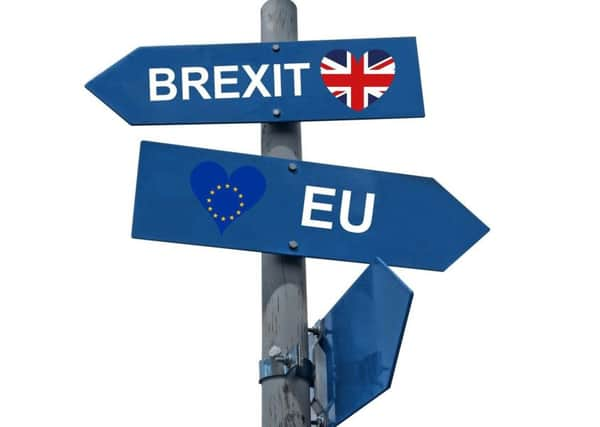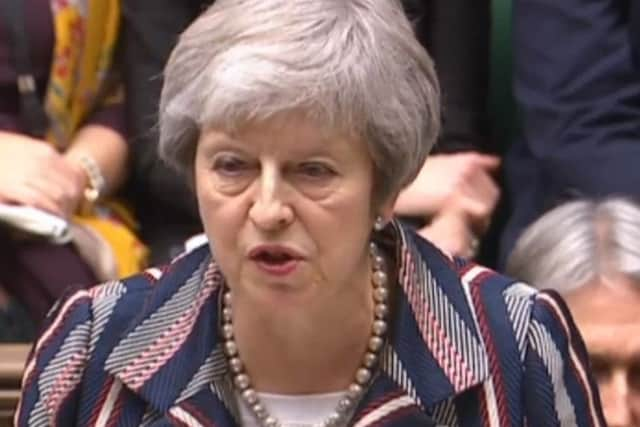Mark Barlow: Five reasons why small businesses are stuck in Brexit limbo


Small business accounts for over 99 per cent of all private sector businesses. Yet, just six per cent of small and medium-sized companies feel the Government is listening to their concerns.
The Government isn’t doing enough to help small business, particularly in the north of England. The North-South divide has never been more accentuated over subjects like Brexit. There is a complete misunderstanding of small business, its value to local communities and its contribution to the country as a whole – especially outside the South East.
Advertisement
Hide AdAdvertisement
Hide AdBrokers are a good barometer. Every day we speak with business owners from all industries and sectors. Many have concerns. Many are putting off making significant decisions about their businesses until some certainty about a post-Brexit world is better understood.


Small business has felt this sense of being in limbo since the nation voted to leave the EU in the referendum well over two years ago. Yet, there are mountainous hurdles still to overcome in the four months to March next year. Despite obtaining approval at an EU summit last weekend, Theresa May’s deal still needs Parliamentary approval. Here are the key factors:
Fluctuating value of the pound: This is good news for exporters for now. There are, however, mounting concerns that small business exporters could face new tariffs once we leave the EU.
Meanwhile, the poor exchange rate is pushing up prices for manufacturers importing raw materials. Businesses that sell and buy from the EU need to have contingency plans in place which will need to be sufficiently flexible to cope with a variety of possible outcomes.
Advertisement
Hide AdAdvertisement
Hide AdToo few are building these contingencies because the unknowns are just too great.
Access to labour: Brokers are hearing from their farmer customers who are complaining about problems finding sufficient numbers of semi-skilled and unskilled labourers to work on their farms.
Once unskilled labour stops arriving from the Continent, these farmers are unsure whether there will be sufficient UK citizens willing to step into the needed roles.
Similar stories are being told by small business owners in construction and social care provision.
Advertisement
Hide AdAdvertisement
Hide AdLack of investment: Economic and political uncertainty has forced businesses to be cautious. The last thing any economy needs from its entrepreneurs and business owners is prolonged caution. That puts the brakes on the economy.
Many small businesses haven’t inwardly invested since the referendum and won’t do until they know what is happening. Major business decisions have largely been placed on the back-burner with little or no investment in machinery, technology, new staff recruitment or training existing employees.
Uncertainty of a ‘no deal’: Almost half of all small firms believe a no deal Brexit will have a negative effect on their ability to do business. This rises to 61 per cent for those small firms that employ a staff member from the EU and to 66 per cent for those that trade with the EU.
Forward-planning and financial knowledge are vital skill sets for any small business owner. Yet only one in seven (14 per cent) of small businesses have started planning for a no deal Brexit conclusion according to the Federation of Small Businesses.
Advertisement
Hide AdAdvertisement
Hide AdRisk: The days of confining your insurance cover to fire, flood and theft are long gone. Today you are just as likely to suffer a cyber attack. Small business owners ask me what will happen in the fight against cybercrime when we are no longer eligible to be part of the EU’s law enforcement agency,Europol.
Cybercrime is a real and fast-changing issue. There is some insurance available but the policies often do not provide the majority of clients with protection for what they actually need.
There’s a lack of understanding around insurance. These financial products can be quite confusing if not explained carefully. Risks are changing all of the time, even if we are unsure what Brexit actually means for small business.
Mark Barlow is managing director of IFM Insurance based in Sheffield.